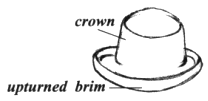Last year, CCTV journalists approached pedestrians with their cameras, held a microphone to their mouth and asked a simple question, “Are you happy?”
The question has caught many interviewees off guard. Even Mo Yan, who just won a Nobel Prize, responded by saying, “I don’t know”.
While the question has become a buzz phrase and the Internet plays host to heated discussions, we ask: What exactly is happiness? And how do you measure it?
In the 1776 US Declaration of Independence, Thomas Jefferson set in writing the people’s unalienable right to “Life, Liberty and the Pursuit of Happiness”. 235 years on, Wen Jiabao told the nation, “Everything we do is aimed at letting people live more happily.” At National People’s Congress, officials agreed that increasing happiness would be a top target for the 12
th five-year plan.
US psychologist Ed Diener, author of Happiness: Unlocking the Mysteries of Psychological Wealth, describes happiness as “ a combination of life satisfaction and having more positive than negative emotions”, according to US broadcasting network PBS. This may sound straightforward enough, but it still doesn’t explain what determines people’s happiness.
Many argue that happiness is
elusive and that there is no single source. It also means different things to different people. For some, happiness can be as simple as having enough cash.
Researchers believe happiness can be separated into two types: daily experiences of hedonic (享乐的) well-being; and evaluative well-being, the way people think about their lives as a whole. The former refers to the quality of living, whereas the latter is about overall happiness, including life goals and achievements. Happiness can cross both dimensions.
Li Jun, a psychologist and mental therapy practitioner at a Beijing clinic, says, “Happiness can mean both the most basic human satisfaction or the highest level of spiritual pursuit. It’s a simple yet profound topic.”
Chen Shangyuan, 21, a junior English major at Nanjing University of Aeronautics and Astronautics, said his idea of happiness always evolves. “At present it relates to how productive I am in a day,” he said. “It might be linked to job security or leisure time after I graduate.”
Then there is the question of measuring happiness. Does it depend on how many friends we have, or whether we own the latest smart phone? Is it even quantifiable?
Economists are trying to measure happiness in people’s lives. Since 1972, Bhutan’s GDP measurement has been replaced by a Gross National Happiness index. It is calculated according to the peoples’ sense of being well-governed, their relationship with the environment, their satisfaction with economic development, and their sense of national belonging.
In 2009, US economist Joseph Stiglitz proposed “to shift emphasis from measuring economic production to measuring people’s well-being”. But is well-being more easily measured?
小题1: In the second paragraph, the writer gave an example to ________.
| A.support his idea that being famous is the reason to be happy |
| B.introduce his topic to be discussed |
| C.tell people winning a Nobel Prize is a great honor |
| D.show that the question was quite difficult |
小题2:From what Thomas Jefferson and Wen Jiabao mentioned in the passage, we know ________.
| A.people’s happiness is determined by great people |
| B.people’s happiness is an important target for the development of a country |
| C.people in all countries have the right to ask the government for a happy life |
| D.people both in China and America are living a happy life |
小题3:According to the passage, the writer may most likely agree that ________.
| A.CCTV journalists are concerned about people’s happiness out of sympathy |
| B.the question has led to heated discussions about who are the happiest people in China |
| C.Bhutan’s new index shows that people there are the happiest in the world |
| D.it is not easy for us to decide what determines people’s happiness |
小题4:What does the underlined word “elusive” in the sixth paragraph mean?
| A.available. | B.easy to get. | C.hard to describe. | D.unimaginable. |
小题5:The best title of the passage is ________.
| A.Are you happy? | B.The Measurement of Happiness |
| C.GDP and Happiness | D.The Secret of Happiness |



 阅读快车系列答案
阅读快车系列答案
